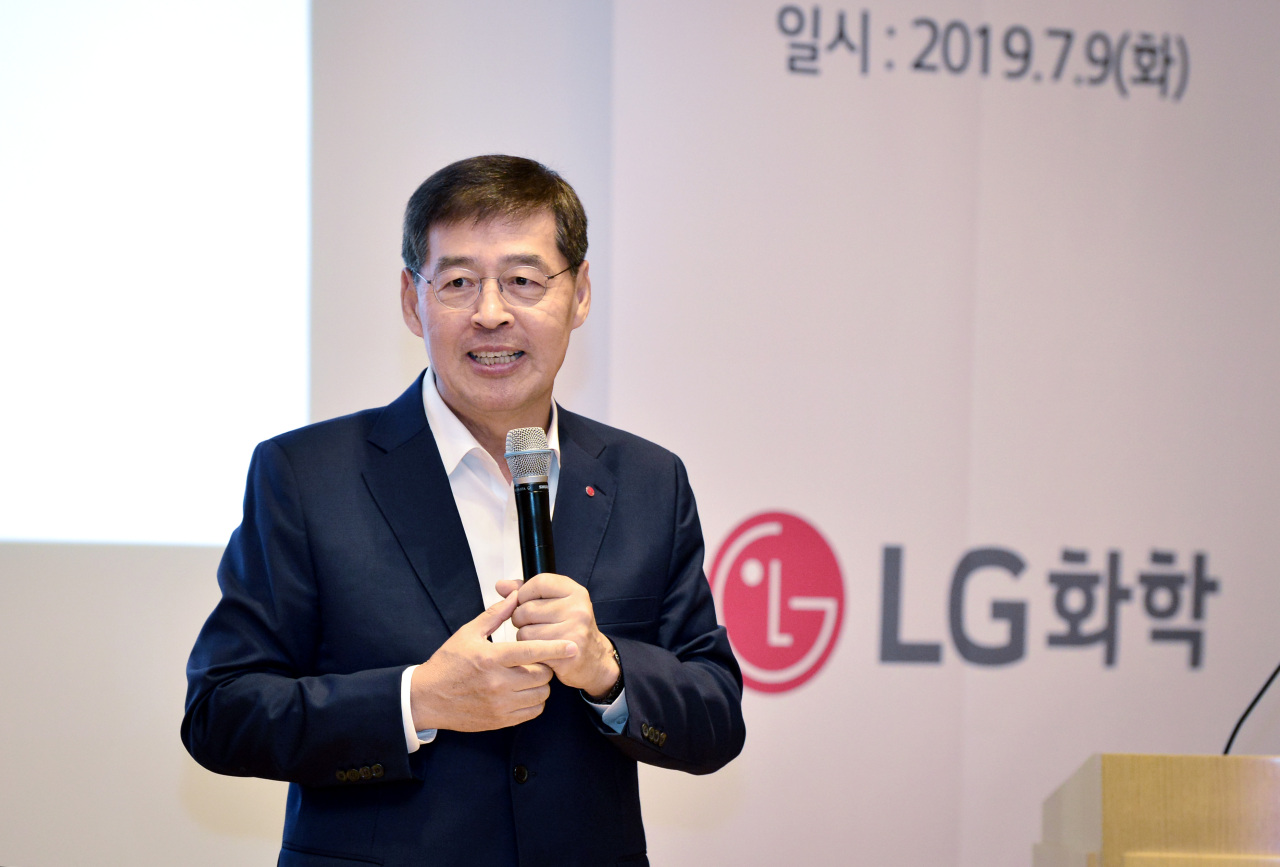Shin Hak-cheol, vice chairman and CEO of LG Chem, vowed Tuesday to make the company one of the world’s five biggest chemical companies in the next five years by doubling its revenue by 2024.
 |
LG Chem Vice Chairman & CEO Shin Hak-cheol speaks during a press conference held at LG Twin Tower in Yeouido, western Seoul on Tuesday. (LG Chem) |
“LG Chem will reach 30 trillion won ($25.4 billion) in sales this year for the first time and 59 trillion won by 2024, becoming a global top five company,” Shin said during his first press conference since he took office in February.
Shin is the first CEO of LG’s petrochemical and battery manufacturing affiliate to have come from outside the company. He was the vice chair of 3M.
To achieve the goal, the company will invest 1.3 trillion won in research and development in 2019, up 200 billion won from annual R&D expenses last year.
By the end of the year, it will hire 700 additional researchers, bringing the size of its R&D workforce to 6,200.
“The company’s new catchphrase for growth is ‘build strength on strength,’ which means to make this strong company even stronger by reinforcing the R&D division and making preemptive investments at opportune times,” he said.
Significant portions of new investments will be allocated to the firm’s rapidly growing lithium-ion battery business and life science business, the vice chairman said.
“We will continue investing in the battery business in the next two to three years, despite some fluctuations, such as the fire accidents with energy storage systems,” Shin said. “The company aims to raise 10 trillion won in battery sales this year, and 5 trillion won will come from the electric vehicle battery sector.”
However, he could not confirm when the battery business would see a noticeable surplus.
In the long run, the battery business will account for 50 percent of the company’s entire sales at around 31 trillion won, the executive said.
Regarding concerns about the possible expansion of Japan’s curbs of exports of key materials needed for Korean chip and display makers, Shin said the company has already established likely scenarios and countermeasures.
“For materials of EV batteries, like the battery separators, anode and cathode, we have not only Japanese suppliers but also Korean, Chinese and even some European,” he said. “It has been our longtime goal to diversify the supply chain across various regions and products.”
“We don’t’ have immediate concerns about the issue, but I believe we can overcome expected problems if the restriction expansion is realized,” he added.
By Song Su-hyun (
song@heraldcorp.com)





![[Today’s K-pop] Blackpink’s Jennie, Lisa invited to Coachella as solo acts](http://res.heraldm.com/phpwas/restmb_idxmake.php?idx=644&simg=/content/image/2024/11/21/20241121050099_0.jpg)


